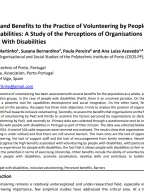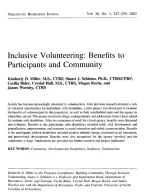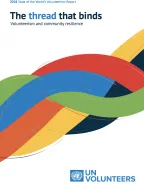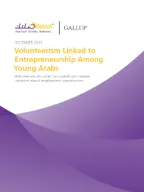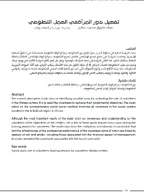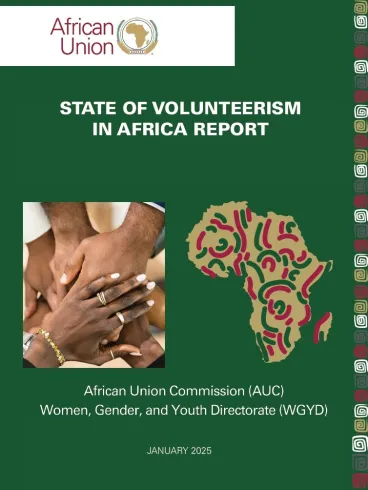
State of Volunteerism in Africa Report
Fast read
The State of Volunteerism in Africa Report by the African Union Commission (AUC) offers a comprehensive overview of traditional and modern volunteerism across the continent. This first-ever the State of Volunteerism in Africa Report demonstrates that volunteerism permeates every aspect of life and every culture. As such, volunteers from both traditional and modern forms of volunteerism are playing a critical role in the achievement of national, regional, continental, and global peace and development goals.
It provides comprehensive and enlightening information to better understand the actual and potential values of volunteering in Africa, how it can be used as an instrument to the achievement of AU’s Agenda 2063 and the UN Agenda 2030, as well as the existing challenges and what is needed to make volunteerism a true asset and resource for development and peace on the continent.
Synthesis
The report documents institutional progress across African Union Member States, including the establishment of 28 national volunteer programs, 17 laws, 4 policies, 3 strategies, and 4 initiatives supporting volunteerism.
Volunteerism in Africa contributes significantly to development and Agenda 2063, with over 651,000 assignments and 71 million hours annually, valued at more than USD 353.5 million.
It recognizes traditional forms of volunteering as deeply rooted in African cultures and highlights the underreporting and undervaluation of these informal contributions.
Key challenges include the lack of prioritization of volunteerism in national policies, insufficient financial resources, and limited integration of volunteerism into official data systems.
The report calls for increased investment in volunteerism, including dedicated budgets and stronger policy integration at both national and continental levels.
It recommends integrating volunteerism into regular census and statistical surveys to better measure its scale and impact.
The AUC is encouraged to support more robust data collection mechanisms among all member states, including the adaptation of digital tools like Togo’s volunteer tracking system.
The report concludes that inclusive and well-supported volunteerism is essential for achieving Agenda 2063 and the SDGs, and calls for greater recognition of its role in promoting development and social cohesion.













